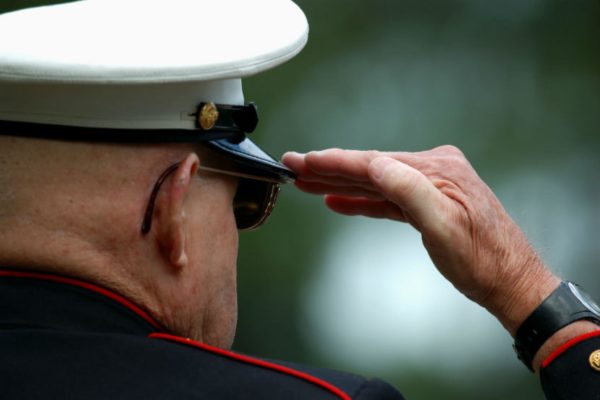On Veteran’s Day we honor the men and women who served in our armed forces. Their sacrifices insured our security and promoted our prosperity. Their sacrifices supported the growth of our democracy.
But yet, sacrifice only works when we serve without guarantee of personal reward. It requires broad participation, across races, classes, and regions. It demands some basic faith in our imperfect system of governance and our always-flawed leaders. Sacrifice is about devoting oneself to a higher public cause.
Less than three months after the Japanese attack on Pearl Harbor, President Franklin Roosevelt advocated national sacrifice as a foundation for hope and a necessary response to fear:
“This generation of Americans has come to realize, with a present and personal realization, that there is something larger and more important than the life of any individual or of any individual group – something for which a man will sacrifice, and gladly sacrifice, not only his pleasures, not only his goods, not only his associations with those he loves, but his life itself. In time of crisis when the future is in the balance, we come to understand, with full recognition and devotion, what this Nation is, and what we owe to it.”
In our current turbulent times just following a storm election, our society would benefit from less hate and recrimination, and more attention to the virtues of sacrifice.
We need not agree on the solutions to our problems if we can agree to commit ourselves to work together in selfless ways. We need not always like one another if we can find shared identity in common struggle. The challenges demanding collective sacrifice are evident today, and a prior generation offers a useful model of citizenship.
At the time of the Pearl Harbor attack, the American economy was still in the midst of the worst recession in the nation’s history.
As President Roosevelt contended with economic disaster, he had to resist the global trends toward fascist hatred, and prepare to fight the strongest militaries in the world on two distant continents.
The president knew that meeting these monumental challenges required the full commitment of the American people. Roosevelt spoke directly and honestly, using his radio “fireside chats” to describe the threats, without exaggeration, and call upon Americans for help in collective efforts to produce, prepare, arm and fight.
Roosevelt demanded widespread sacrifices because he had no choice, but also because he understood that collective sacrifice created reservoirs of strength and unity in a country desperately in need of both after a decade of depression.
Turning the war against fascism into a war of the people, by the people, and for people improved the citizen body. As Lincoln predicted at Gettysburg, an active and committed population made our nation great, not the reverse.
It worked. More than 6 million men and women voluntarily joined the U.S. armed forces between 1941 and 1945.
Americans also stepped forward to contribute to the cost of the war. Eighty-five million people, half the population of the United States, bought war bonds. Private citizens purchased $185.7 billion of those bonds, covering roughly 60 percent of the cost of the war.
Those numbers are staggering, but they do not fully measure the sacrifices of Americans. Parents and children cut back in their homes to “save waste fats for explosives,” reduce meat consumption, and lived by the slogan of “grow your own, can your own.” Commuters were told: “when you ride alone you ride with Hitler, join a car sharing club today!”
And they did in large numbers.
Farmers donated scrap material in order to “sink a sub from your farm.” Women joined the work force in record numbers to replace men who were deployed abroad. And Americans learned that spies could be lurking anywhere so “loose lips might sink ships”.
The effort to win the war and build a better world involved nearly every citizen. Under President Roosevelt’s leadership Americans curtailed their personal desires, risked their lives, and invested directly in the war effort. Americans stepped forward to sacrifice.
We face many of the same challenges today, including gathering threats abroad and a loss of faith in our democracy at home. We cannot renew our national strength without a return to public sacrifice by all citizens – including those with the highest incomes and the best connections.
Instead of arguing over personalities and wedge issues, we need leaders who will motivate citizens for sacrifice toward common goals. We will only come together again, when we sacrifice together again. That is the fundamental lesson our veterans have taught us.
It is a lesson a new generation will embrace, if the bickering politicians will finally step aside, and let a new set of citizen-soldiers take the field.
Jeremi Suri holds the Mack Brown Distinguished Chair for Leadership in Global Affairs at The University of Texas at Austin. Mark Eaker is a graduate student in history at The University of Texas at Austin.
A version of this op-ed appeared in the San Antonio Express News, Houston Chronicle, Dallas Morning News and the Austin American Statesman.
To view more op-eds from Texas Perspectives, click here.
Like us on Facebook.




